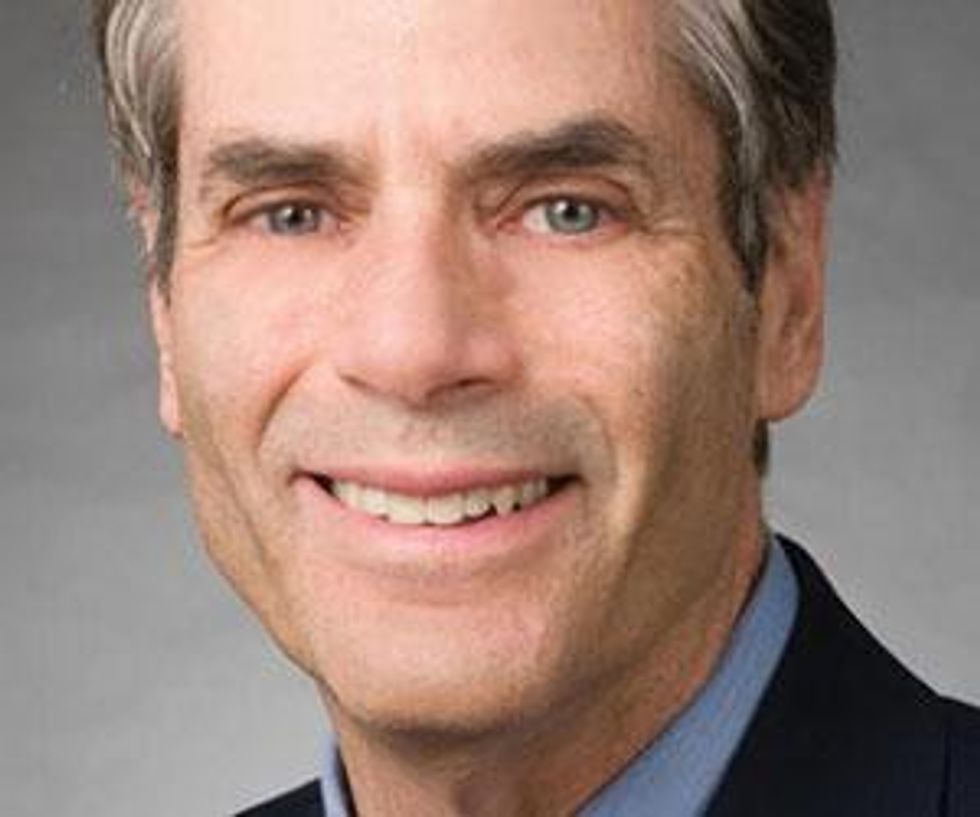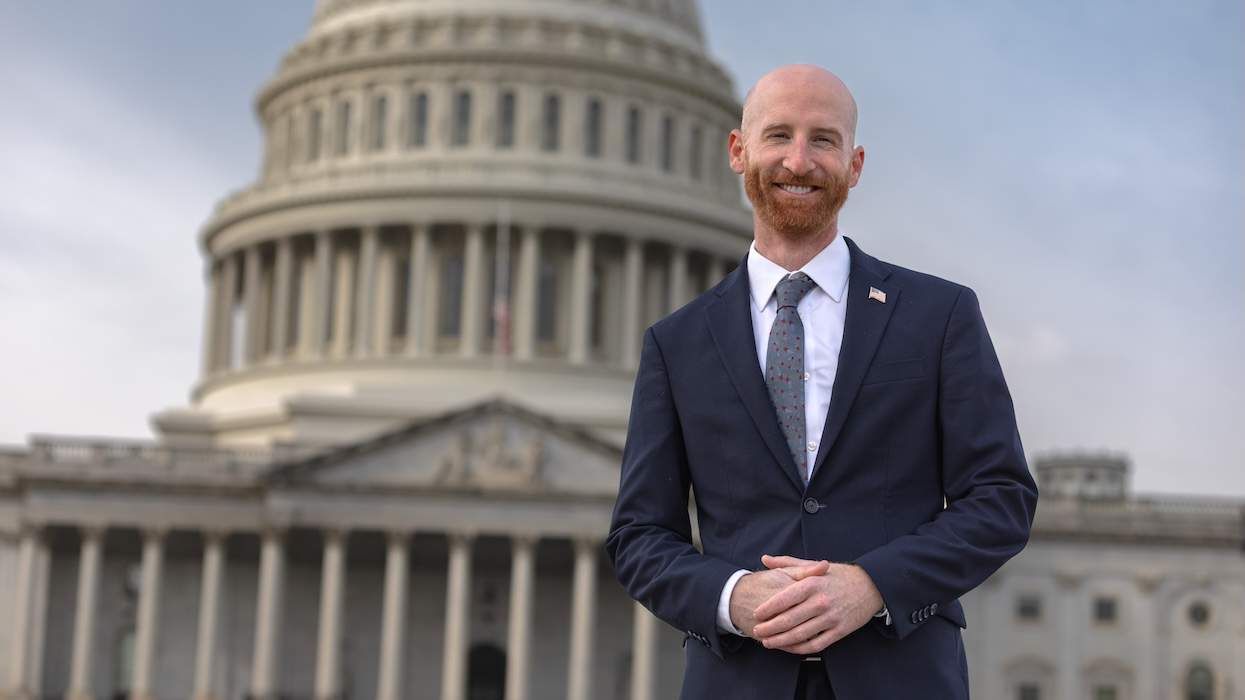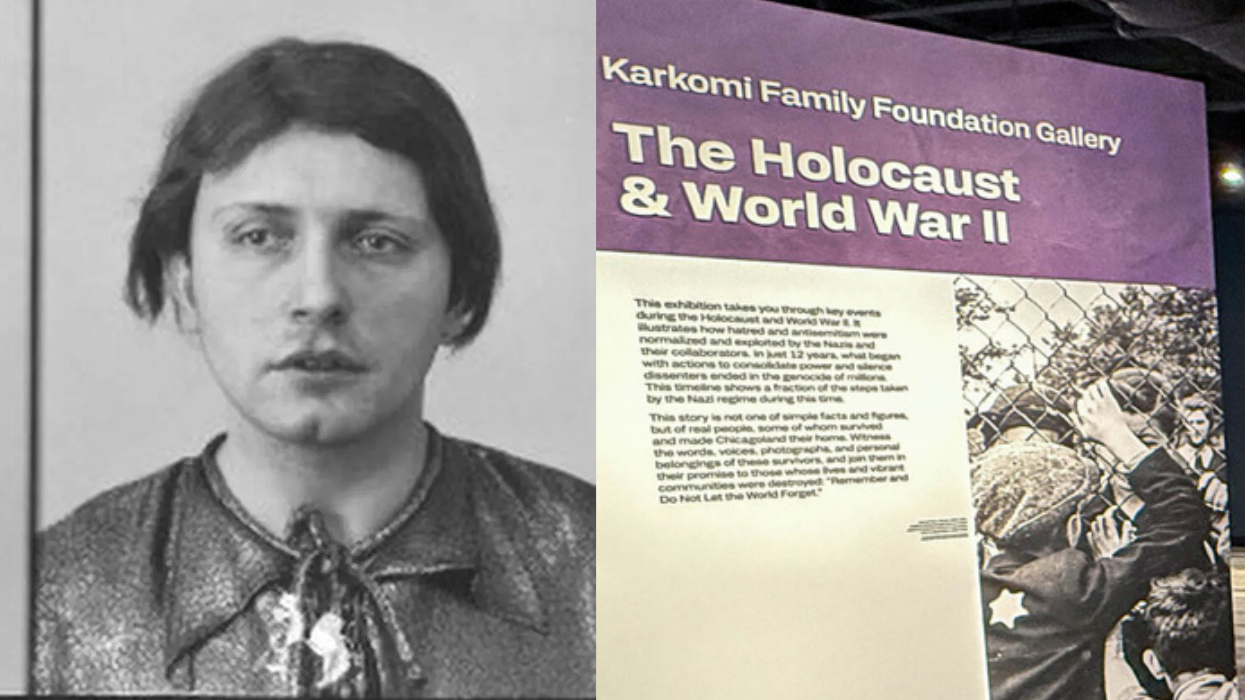No country in Asia comes close to Israel's affirmation of LGBT rights, and observers commonly regard Tel Aviv as one of he most gay-friendly cities in the world.
The government of Israel affirms LGBT rights, and even the mainstream Orthodox establishment concurs. When the chief rabbi of Jerusalem, Aryeh Stern, went to Hadassah Ein Kerem Hospital to visit the victims of Yishai Schlissel's despicable stabbings at the annual Gay Pride parade, he proclaimed, "It is a day to pray for the safety of the wounded."
His visit was an important gesture and sent an important message. The Orthodox establishment is not the problem.
In fairness too, far from all the ultra-Orthodox population advocate violence against Israel's LGBT population.
And yet we cannot deny that Yishai Schlissel comes from a fanatical fringe environment that continually calls any sort of LGBT sexual activity an "abomination."
An apt analogy is Yigal Amir's 1995 assassination of Yitzhak Rabin. Most of Israel supported Rabin, but many citizens objected to his peace initiative. Supporters and detractors engaged in vigorous debate, but only the fringe far right called him a rodef, one who threatened Jewish lives and was therefore fair game to be cut down.
That fringe right -- well beyond the Orthodox and even much of the ultra-Orthodox spectrum -- also influenced Yishai Schlissel. He took cues from the likes of chief rabbi of the Samaria region in the West Bank, Elyakim Levanon, who called homosexuality "an abomination."
Ah, the old abomination tag?
It comes form Leviticus 18:22, which calls men lying with men an abomination, and 20:13, which says those who do so "shall be put to death."
As many have pointed out, if we did that, those who gather sticks on the Shabbat or insult their parents are also subject to execution.
The real sin here is "bibliolatry" the sin of taking the Bible literally and not interpreting it to reflect anything beyond the literal rendering of the words.
What gives homosexual acts "privilege of place" over those other "abominations"? Here's a guess.
Everyone gets that the death for gathering sticks on Shabbat business is to impress the reader with the importance of making Shabbat a special time. The same goes for impressing kids to respect their folks.
As for a man lying with a man, we need a different perspective.
I challenge anyone to carefully read the 39 books of the Hebrew Bible and show me a single clear reference to a homosexual relationship described in warm, loving terms.
David's relationship with Jonathan might have been that (I Samuel, 19 ff) or it could have been a strong "bromance." We cannot be sure.
What is sure is that the only clear biblical references to men "lying with men" are to forced acts of homosexual sex as in the context of war or rape situations. The desire of the men of Sodom to force themselves upon Lot's protected guests (Genesis 19) is a prime example. Of course the Bible condemns such acts.
It is clear to me as well that the "abomination" passages are trumped by one of the most basic principles of Hebrew thought: that human beings are created "in the image of God (Genesis 1:26ff)."
Any serious Bible student should be able to see that if God made people a certain way, and we revere God, than we need to respect the diverse innate realities of others lives as a reflection of the Divine.
The ability to interpret biblical passages as I do here (and the way I do so in my book What's in It for Me? Finding Ourselves in Biblical Narratives) is not new. In the Talmudic era (c. 200 B.C.E. until c. 550 C.E.) wise sages interpreted scripture in such a way to upgrade the status of women in many important ways and made other vital innovations to bring the emerging Jewish religion from an ancient agrarian society to a much more urban one. Unfortunately, the fringe ultra-Orthodox has failed to evolve in any way since then.
As far as LGBT issues go, society itself has been slow to evolve. The good news is that we are in a period of great awakening and growing awareness.
As late as 1968 when I graduated from Hamilton College, then an all-male school, there was not one classmate who identified himself as gay. By the time of our 25th reunion, a significant number did. As our 50th reunion draws nearer, many more of my classmates acknowledge that they are gay.
With regret and shame, I acknowledge that I too came only recently to genuine concern for this issue, in October 1998.
On October 6, Aaron McKinney and Russell Henderson brutally beat and tortured Matthew Shepard because he was gay and hung his body on a fence post to die. Their savage act caused me to realize that on this issue I could no longer remain where McKinney and Henderson left Matthew Shepard, on the fence.
Mathew Shepard's murderers felt free to carry out their heinous act because society reinforced their view of homosexuals as less than human. That horrible incident convinced me that when it comes to the rights of gays, lesbians, and transgender individuals, there are only two possibilities: We will either be part of the problem or part of the solution.
Society's laws and attitudes have been part of the problem for too long. It is time for all of us to become part of the solution, and we Jews should stand in the forefront of the struggle. That's what makes the evolution of the Gay Pride March in Jerusalem so important. We have come a long way, but we have a very long way to go.
This week we mourn the tragic death of Shira Banki. I pray that her horrible death will open other eyes the way Matthew Shepard's opened mine.
 RABBI STEPHEN LEWIS FUCHS is the author of What's in It for Me? Finding Ourselves in Biblical Narratives. He is the former president of the World Union for Progressive Judaism and rabbi emeritus of Congregation Beth Israel, West Hartford, Conn.
RABBI STEPHEN LEWIS FUCHS is the author of What's in It for Me? Finding Ourselves in Biblical Narratives. He is the former president of the World Union for Progressive Judaism and rabbi emeritus of Congregation Beth Israel, West Hartford, Conn.


 RABBI STEPHEN LEWIS FUCHS is the author of What's in It for Me? Finding Ourselves in Biblical Narratives. He is the former president of the World Union for Progressive Judaism and rabbi emeritus of Congregation Beth Israel, West Hartford, Conn.
RABBI STEPHEN LEWIS FUCHS is the author of What's in It for Me? Finding Ourselves in Biblical Narratives. He is the former president of the World Union for Progressive Judaism and rabbi emeritus of Congregation Beth Israel, West Hartford, Conn.

































































Charlie Kirk DID say stoning gay people was the 'perfect law' — and these other heinous quotes